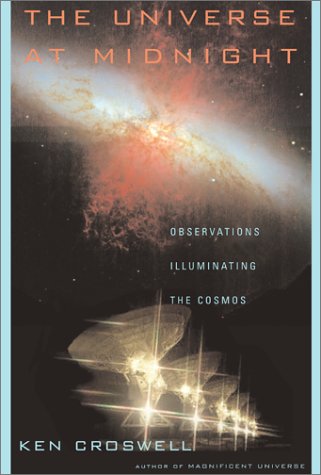







| BOOKS | F. A. Q. | ARTICLES | TALKS | ABOUT KEN | DONATE | BEYOND OUR KEN |
|---|
Why, then, does the actual Pluto look so faint? There are two reasons: because it is far from the Sun, and because it is far from the Earth.
Every planet in the solar system shines not because it generates its own light but because it reflects the light of the Sun. However, the farther a planet from the Sun, the weaker is the sunlight that strikes it. Worse, this weakness increases as the square of the planet's distance. For example, Saturn is about 10 times farther from the Sun than the Earth is, so the sunlight striking it is 100 times weaker. And Pluto, on average, is about 40 times farther from the Sun than the Earth is, so the sunlight striking it is 1,600 times weaker.
If that weren't bad enough, this weakened sunlight from Pluto then has to travel back across billions of miles to our telescopes on Earth. During that journey, the light spreads out and weakens further. As a result, Pluto is so faint that you need a telescope to see it.
But if Pluto were closer--as close as Mars, for example--it would be very bright, ancient people would have recognized it as a planet long ago, and modern people probably wouldn't be debating its planethood!
| BOOKS | F. A. Q. | ARTICLES | TALKS | ABOUT KEN | DONATE | BEYOND OUR KEN |
|---|